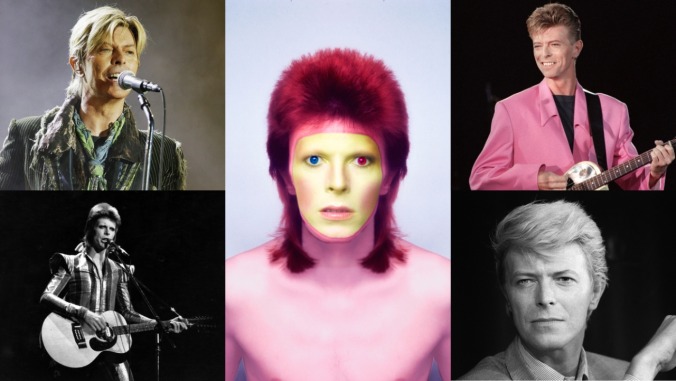Happy birthday, David Bowie: Ranking his 20 best albums
Counting down the finest albums from the Chameleon of Rock

Clockwise from bottom left: David Bowie as Ziggy Stardust in London, 1973 (Photo: Express/Getty Images); Bowie performs in 2004 in Newport, UK (Photo: Jo Hale/Getty Images); A color-enhanced image exaggerating Bowie’s ‘Pin Ups’ album (Photo: Justin de Villeneuve/Getty Images); Bowie performs in Paris in 1991 (Photo: Pierre Verdy/AFP via Getty Images); At the 36th Cannes Film Festival in 1983 (Photo: Ralph Gatti/AFP via Getty Images) Graphic: The A.V. Club
During his five-decade career, David Bowie released 26 studio albums as well as seven official live albums plus a host of compilations. His discography has greatly increased in the years since his 2016 death, with archival live sets, box sets, and such scrapped albums as The Gouster and Toy seeing the light of day. It’s a lot to sort through and there are pitfalls: the sparkling swagger of “Blue Jean” continues to convince listeners there may be something else of worth on 1984's terrible Tonight. Here, The A.V. Club has selected 20 records that capture Bowie at his peak, whether he’s honing his craft, striving for a new sound, or mustering the full strength of his artistry.
Join the discussion...